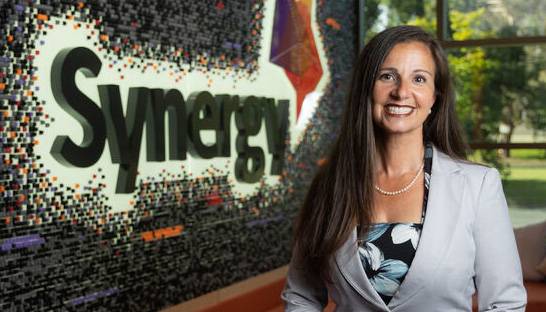[ad_1]
Over the past two years, resilience has become one of the main characteristics of adaptive and successful organizations. Antonia Marzulli, CEO of leading professional services firm Synergy Group, shares her perspective on what resilience really means in the workplace at all levels.
Resilience is something that is often sought after – especially in the world of management consulting. You have to be ready to face new challenges, work consistently and come back stronger in tough times. But this is where durability can be problematic.
It’s one thing to “bounce back”—but what does that actually mean, and when does bouncing back lead to burnout?

As the leader of a large and dynamic organization, I strongly believe that truly demonstrating resilience does not mean a dogged determination to “get the job done no matter the cost”. In reality, resilience means accepting difficulties or changes, allowing yourself to feel challenged and coming out of difficult times with a better understanding of yourself, your skills and areas for development.
Asking our teams to pack up and dust themselves off may seem like the best way to keep the business going, but not allowing enough time for growth and change is often at odds with what our people really need.
Here are a few ways I like to reframe resilience in the workplace:
Resilience means teamwork
Resilience is a special kind of power that I believe is most easily harnessed by a team or group. While it’s easy to feel like your resilience is being tested on a personal or individual level, it’s important to draw on those around you and support them when they need it most.
One of my favorite examples is a study by two researchers in Virginia who found that when an individual looks at a hill they need to climb, their brain perceives it as 10-20% higher when they are alone, as opposed to when looking at the same hill with another person. At Synergy, we act as one team by creating teams with people who think differently, challenge assumptions and support each other.
Resilience means flexibility
I think the pandemic really made that clear to leaders. If we want the best from our teams in a highly turbulent world, we need to work with them to ensure they are given the space and time to perform their roles effectively. A rigid mindset will only lead to feelings of failure and a deterioration in individual well-being and organizational performance.
As leaders, we need to build more resilient teams, which means flexibility, empathy and proven support – this can be big things like agreeing to a remote working model, or seemingly smaller actions – like 15 minutes between meetings. people to decompress and prepare.
True resilience leads to change
To be truly resilient, we must accept that difficult situations will change us. The temptation for many is to try to ‘get back to where we were before’, but the truth is that this may not be possible. Resilience is about acknowledging this fact, learning what we can, and making the confident decision to grow from our experiences.
For example, many organizations that survived the pandemic are now in a different place than where they were—restaurants are offering new delivery services they didn’t have before, offices are using hybrid or remote work, and teams are more comfortable focusing on new services. , urgent tasks that had a lot of practice
At Synergy Group, resilience is an important trait for our people, but only if it is properly understood and supported at all levels.
[ad_2]


